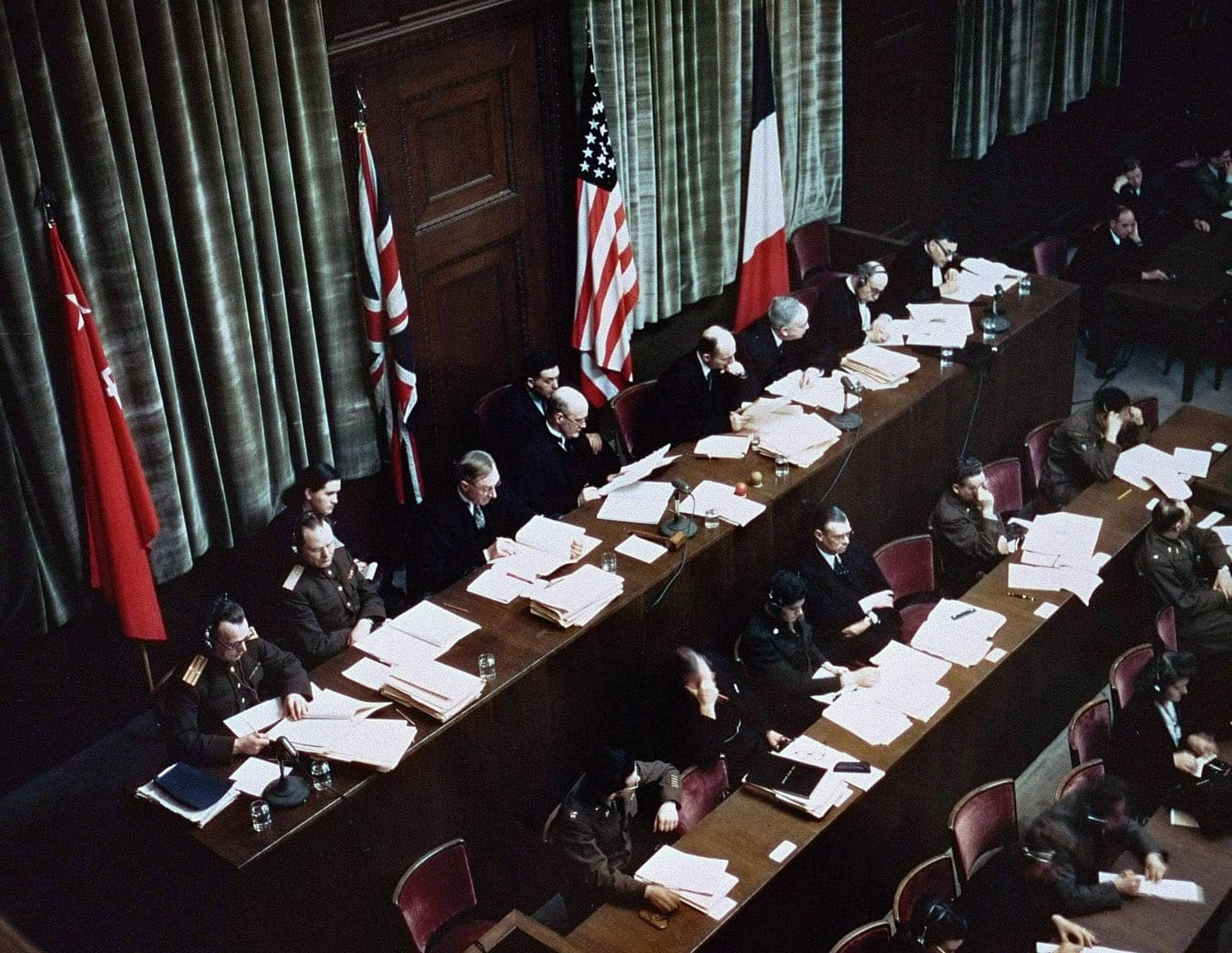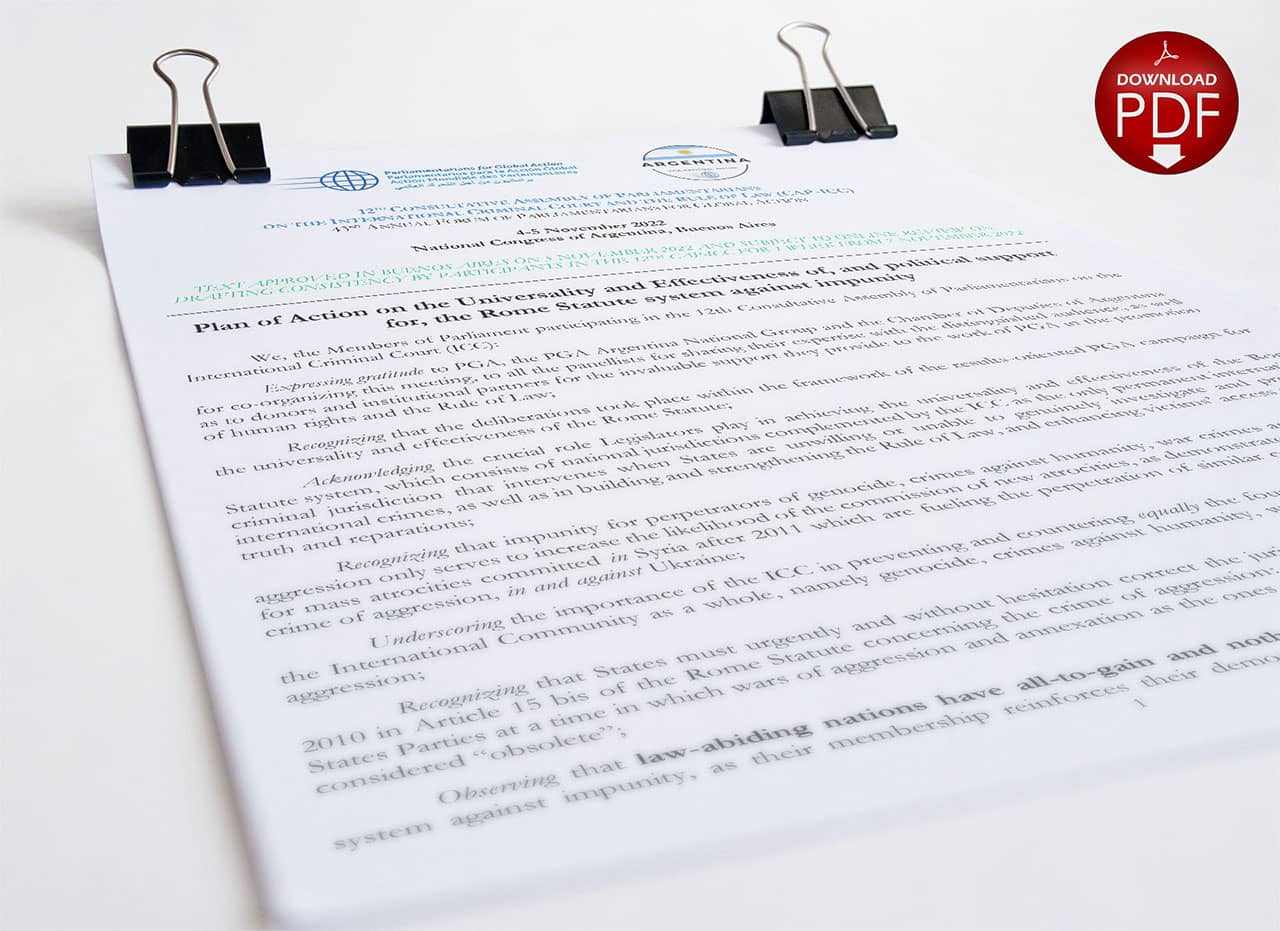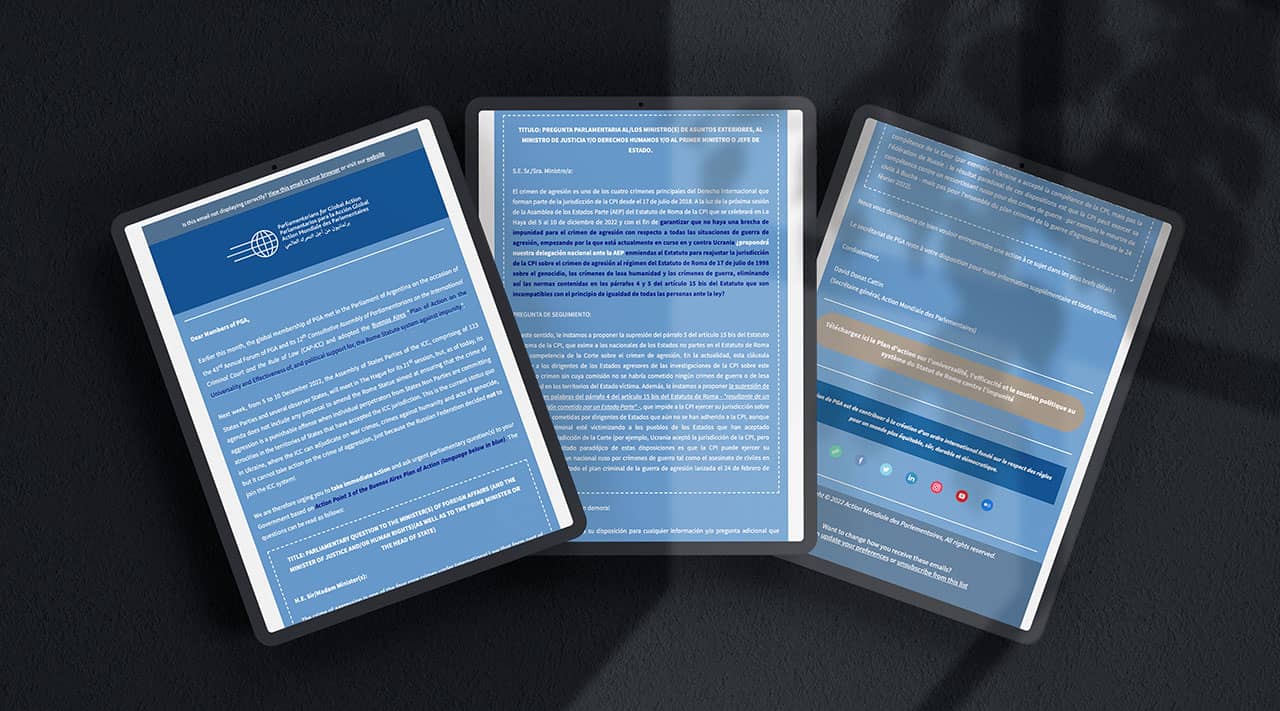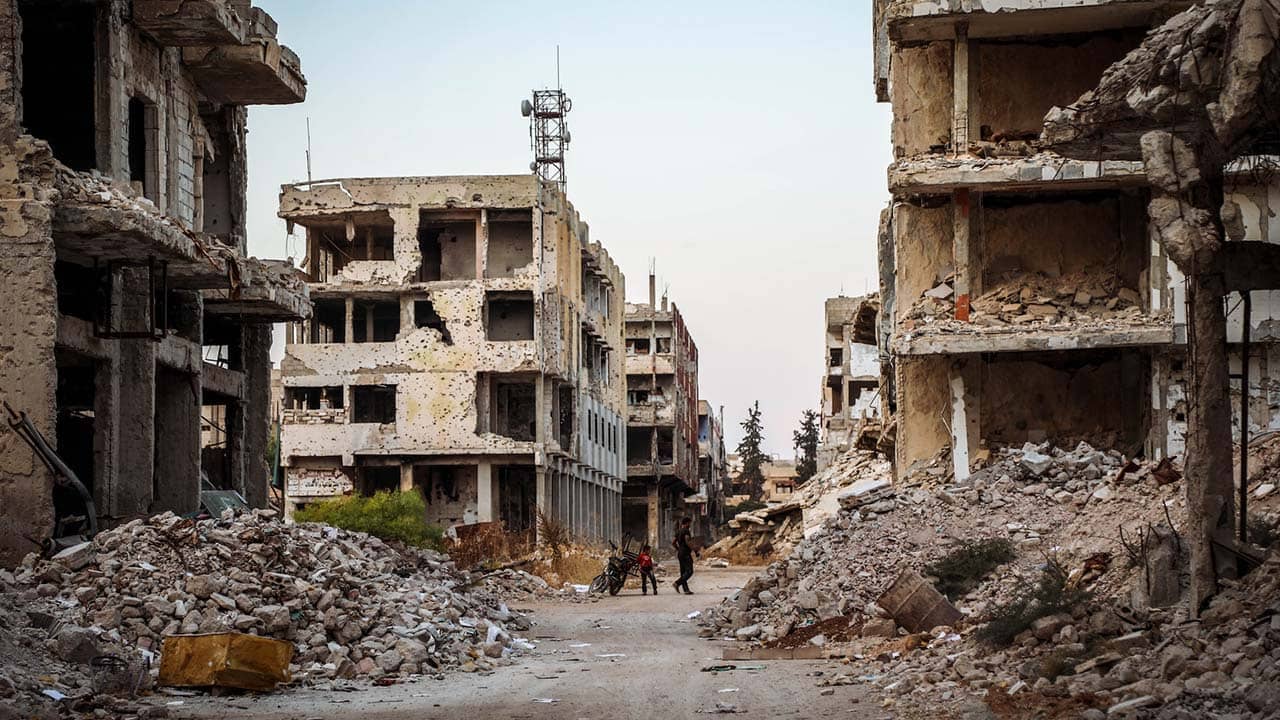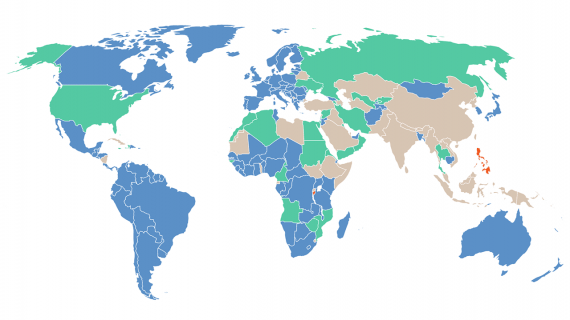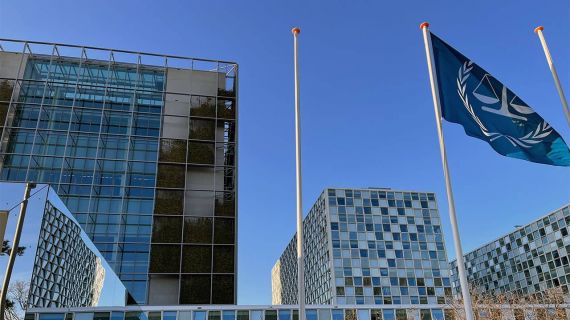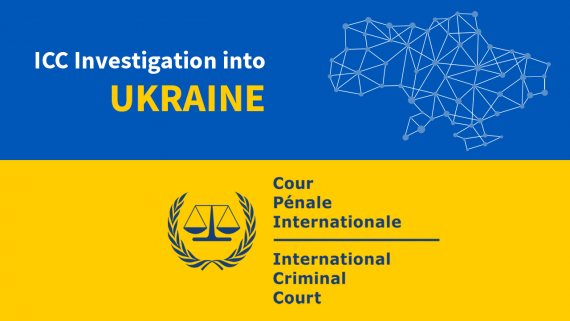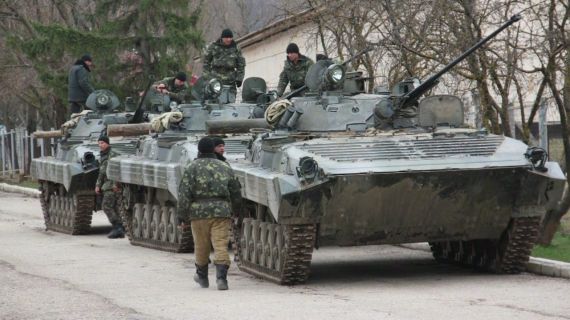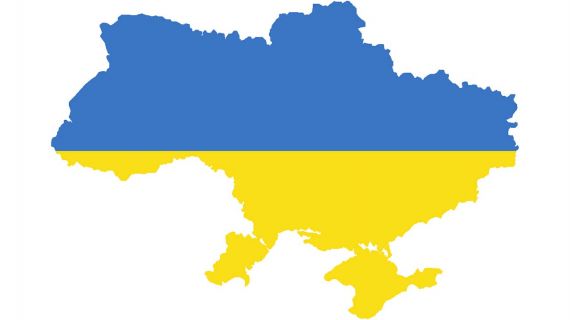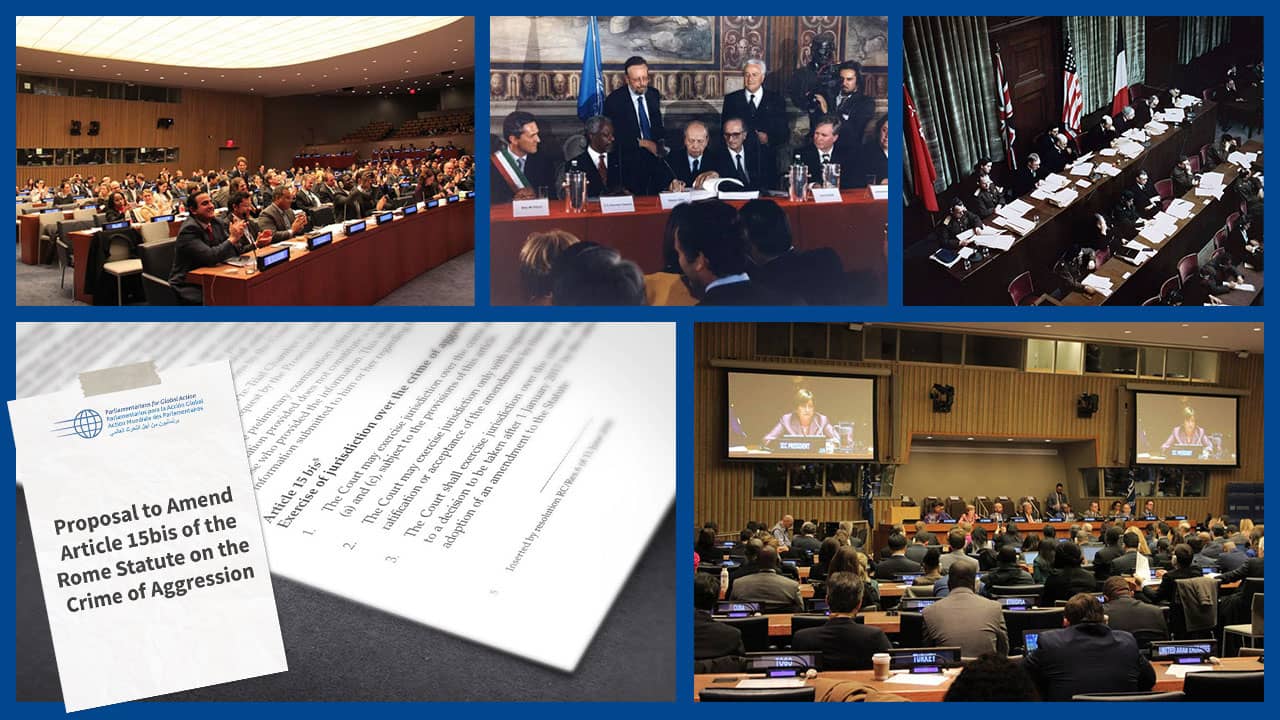
New York/The Hague
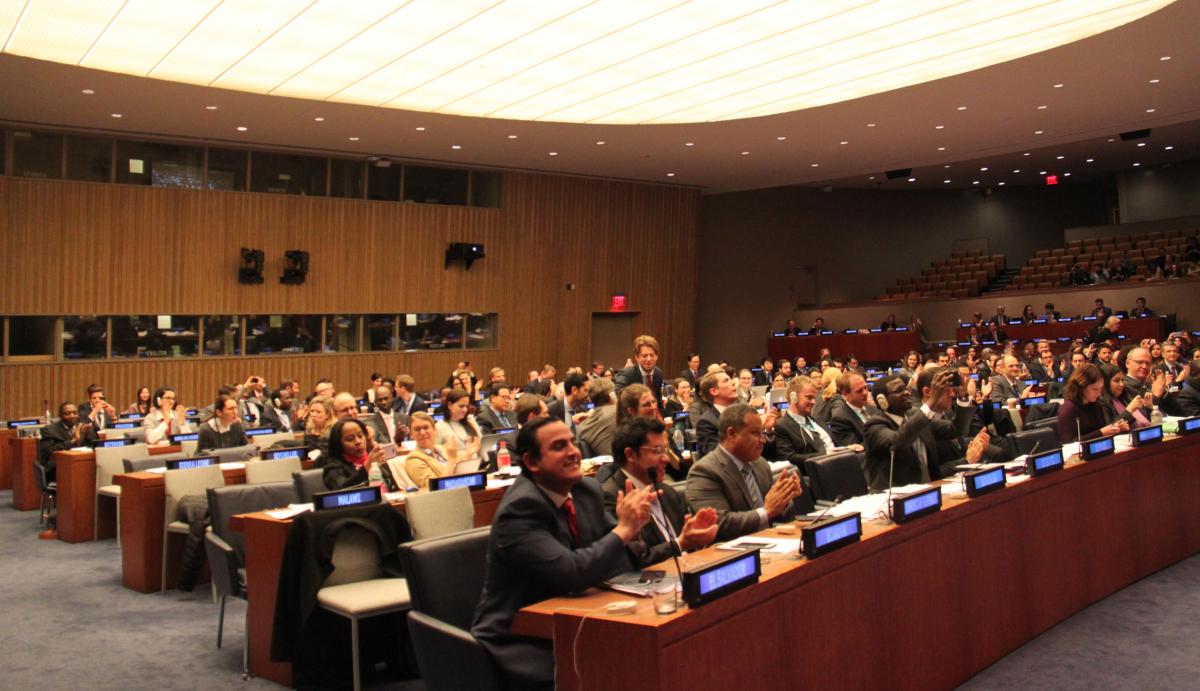
The much-anticipated activation of the crime of aggression - also known as the “supreme international crime” in the Nuremberg trials’ jurisprudence - by the Assembly of States Parties to the International Criminal Court in December 2017 was greeted with great enthusiasm. The activation of the Court’s jurisdiction on this crime and its definition, which was adopted unanimously in June 2010 as Kampala Amendments to the Rome Statute of the ICC, gives effect to the principle “never again” for aggressive wars and enhances the protection of victims of armed conflicts who are not protected by the norms on war crimes, crimes against humanity, and genocide.
Nevertheless, the restrictive jurisdictional regime of the ICC over the crime of aggression, which - except for a UN Security Council referral - requires an acceptance of the jurisdiction over the crime by both the aggressor as well as the victim State, has been of concern ever since. This limitation - not applicable to all other three Rome Statute crimes - has garnered even more attention following the full-scale war launched by a textbook example of an act of aggression by the Russian Federation on 24 February 2022 against Ukraine, which has demonstrated the tragic consequences of such limited jurisdiction in practice.
The ICC itself is currently unable to prosecute the crime of aggression being committed against Ukraine because Russia is a non-party to the ICC and has also not accepted the jurisdiction of the crime of aggression. In light of Russia’s seat as a permanent member of the UN Security Council possessing veto power, a UN Security Council referral of the aggression against Ukraine will not be forthcoming. As such, the impunity stemming from the jurisdictional limitation is - and will continue - precluding accountability of perpetrators of the crime that triggered the immense suffering and commission of atrocities, potentially amounting to war crimes, crimes against humanity, and genocide.
Affirming the principle of individual criminal responsibility for the crime of aggression is central to any accountability efforts. Leaders at the highest level involved in the commission of this crime, from its planning to its launching and execution, must be timely prosecuted.
To complement other initiatives and avenues to achieve prosecution of the crime of aggression committed in and against Ukraine through domestic jurisdictions or by establishing a Special Criminal Tribunal for Ukraine, PGA strongly believes that long-term and sustainable accountability must be addressed by the first permanent international criminal court with potentially universal jurisdiction over the most serious international crimes, the ICC. The Rome Statute, the foundational treaty of the ICC, includes in Article 27 the principle of irrelevance of official capacity, which stipulates that immunities or special procedural rules attached to the official capacity of a person shall not constitute a bar to the prosecution by the ICC.
Current events demonstrate the importance of sending a clear message to all would-be aggressors that manifest violations of the prohibition of the use of force will not be tolerated. PGA’s proposal, thus, seeks to amend Article 15bis of the Rome Statute on the crime of aggression to align its jurisdictional regime with that of the three other core crimes under international law.
Proposal to Amend Article 15bis of the Rome Statute on the Crime of Aggression
Since March 2022, after consulting a group of prominent academic experts, PGA elaborated a non-paper containing specific amendments to Article 15bis of the Rome Statute that would partially align the ICC jurisdictional regime on the crime of aggression to the one that already exists for the other three core crimes.
Most importantly, the amendment would delete para. 15bis (5), which excludes the ICC's jurisdiction on the Crime of Aggression over non-party states. As such, it would enable the ICC to try individuals who are nationals of a non-party State, such as Russia, if they committed the crime of aggression on a territory of a State Party which has accepted the jurisdiction on the crime of aggression. This proposal would not affect the current status quo concerning the States Parties that have not accepted the jurisdiction over the crime of aggression.
If adopted by those States Parties to the Rome Statute that ratified the Kampala Amendments, such proposed amendments would be applicable from 17 July 2018 and binding for those States only. These States have the right to exceptionally invoke Art. 58 of the Vienna Convention on the Law of Treaties to ensure their immediate entry into force to realign the ICC jurisdictional regime on the crime of aggression to the object and purpose of the Statute itself, namely, to put an end to impunity for all the four core crimes under International Law. The PGA non-paper has been shared with the EU Member States and other concerned States that referred the situation in Ukraine to the ICC Prosecutor under Article 13(a) of the Rome Statute.
To ensure that the proposal would be considered and, as appropriate, adopted by the Assembly of States Parties held every year in December in The Hague or New York, the proposal for amendments must be presented by one or more State(s) Parties to the Rome Statute and circulated by the UN Secretary-General as a depository of the treaty as soon as possible, not later than the end of August of the particular year.
Impunity for the crime of aggression was effectively challenged after World War II when the International Community created an International Military Tribunal at Nuremberg in 1945 to adjudicate the main perpetrators of the Axis Powers that carried out the war of aggression. The time has come for the International Community to do the same in the face of the war of aggression in and against Ukraine, being executed by a Permanent Member of the UN Security Council that has so far been able to secure an “impunity zone” for its leaders, as it has already done in respect of mass atrocities committed in Syria.1
PGA strongly believes that the International Community and the Assembly of States Parties, consisting of the ICC Member States, must ensure an appropriate level of political support, cooperation, and financing for the ICC, which is competent for the investigation, prosecution, and adjudication of the most serious crimes of concern to the International Community as a whole. When the States Parties fulfill their responsibility as the Executive and Legislative branches within the Rome Statute system’s institutional design, the ICC judicial and prosecutorial organs will be able to maximize their impact and effectively serve as catalysts for domestic justice systems to counter and reduce impunity.
By enforcing the ICC’s mandate as a complementary court capable of initiating and leading proceedings against those bearing the greatest responsibility over the four international crimes,2 States can strive to achieve a better, more just, and more peaceful world.
David Donat Cattin
Secretary-General, Parliamentarians for Global Action (2014-22)
THE CRIME OF AGGRESSION AS AN ATROCITY CRIME AND RELEVANT VICTIMIZATION
The Crime of Aggression is an atrocity-crime that not only violates the territorial integrity and political independence of a sovereign State, but also brings about the victimization of entire populations, communities, and combatants, whose death, injuries and trauma are caused by the criminal decision of leaders to send them to war (combatants of the aggressor State), which is compelling them to use arms in the exercise of the inherent right of self-defense (combatant of the victim-State).
Victims of the crime of aggression, therefore, include all combatants who are casualties of war or suffer harm and injury from participating in an International Armed Conflict (IAC) caused by a crime of aggression, including combatants following the orders of the aggressor-State and combatants exercising the collective and individual right of self-defense of the victim-State.
Members of the civilian populations and communities living in the territories of the victim-State are individual victims of the crime of aggression while they may also be victims of war crimes, crimes against humanity or genocide.
David Donat Cattin, Secretary-General, Parliamentarians for Global Action (2014-22)
---
Footnotes
1 The Russian Federation used its veto at least 15 times to block any meaningful decision within the UN Security Council to restore international peace and security in Syria. In May 2014, the Russian Federation and the People’s Republic of China vetoed a specific resolution referring the Syrian situation to the jurisdiction of the ICC that 13 States, including the USA, had supported. In June 2014, ISIS/ISIL/IS invaded Iraq and occupied the city of Mosul without finding any resistance or opposition from the Syrian army and its military allies, the Russian Federation, and the Islamic Republic of Iran. Since then, no international tribunal has had territorial jurisdiction over Syria, the leader of ISIS has been executed, and the leaders of Syria, the Russian Federation, and Iran have continued to operate in an “impunity zone.”
The failure to fight impunity sets a precedent that can incentivize the perpetration of atrocities in other situations and the repetition of other heinous crimes in the same situation. Therefore, the fight against impunity is an absolute imperative for deterrence in all situations (general prevention) and for prevention in a specific case to halt the repetition of international crimes, which contributes to maintaining and restoring international peace and security.
2 When the UN Security Council established the two ad hoc Tribunals for the former Yugoslavia and Rwanda in 1993 and 1994, respectively, it took note of the fact that relevant atrocities were taking place within the framework of internal conflicts and the disintegration or collapse of centralized States, hence not requiring the activation of jurisdiction on crimes against the peace/crime of aggression. Thus, the two ad hoc Tribunals’ Statutes were limited to three core crimes under International Law, namely genocide, crimes against humanity, and war crimes. However, all the preparatory documents relating to the establishment of a permanent International Criminal Court since the 1950s have always reflected the list of the four core crimes under International Law, including the crime of aggression, which reproduces the notion of crimes against peace contained in the London Agreement for the Nuremberg Tribunal and which the UN General Assembly affirmed as reflecting principles and norms of customary international law in 1946.

